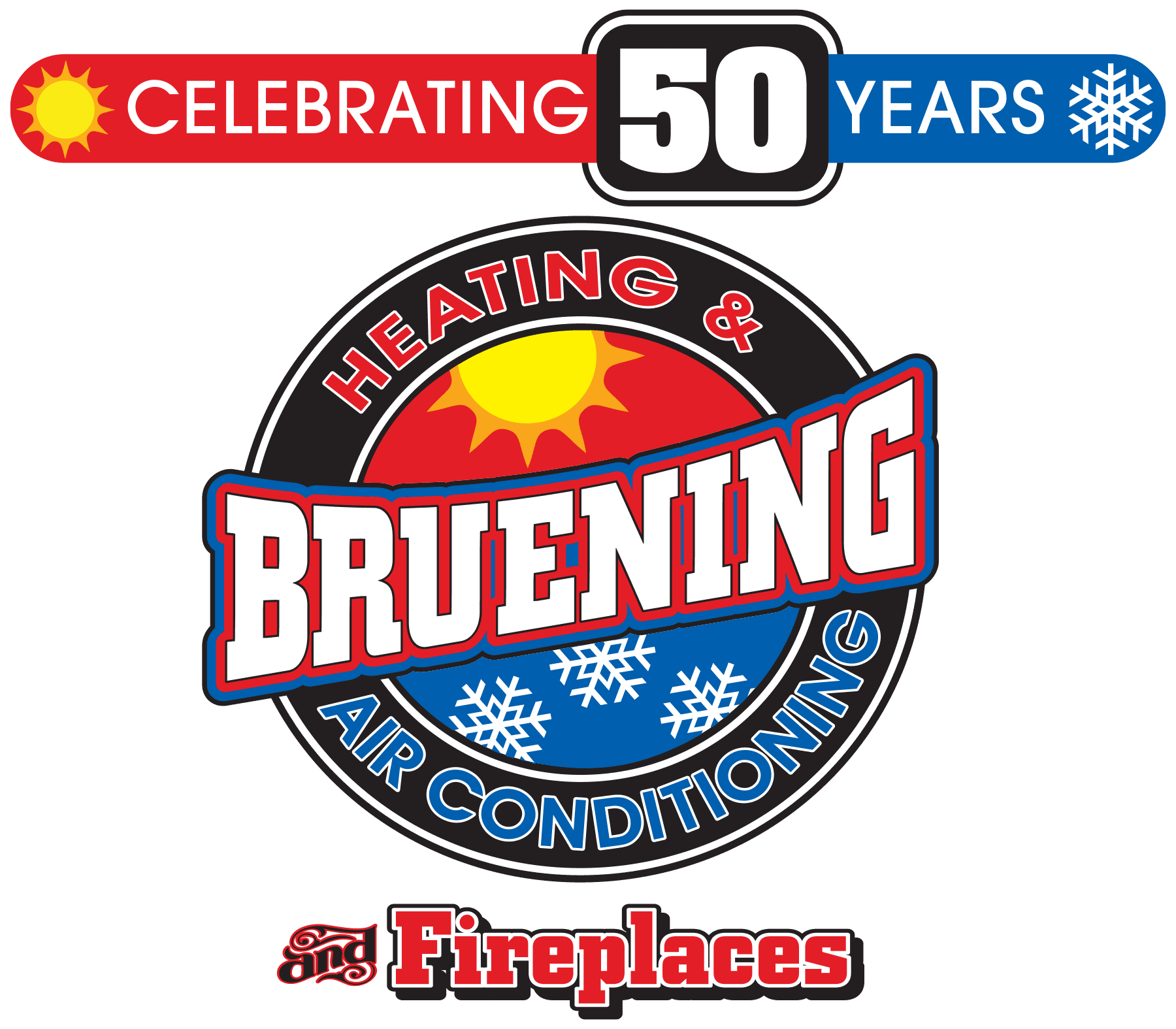Gas Fireplaces – Staying Safe

Gas fireplaces are a clean-burning source of pure comfort and coziness. At the push of a button, your surrounding lights up with a glowing ambience and warmth. Just curl up with a book and enjoy!
Gas fireplaces produce minimal pollution. They are safer than traditional fireplaces in many ways. Some models burn at up to 90 percent efficiency, according to the US Department of Energy (DOE). Unlike wood fires, gas fireplaces don’t create soot that clogs your chimney.
Plus, they come in so many different styles—like a sleek mounted frame in your Ursa master bedroom or a modernistic glass pit on your Illinois back porch.
Whenever one of our Bruening Heating, Air Conditioning, & Fireplaces experts performs service on your home, risk prevention is our top priority. That’s why we triple-check to make sure your gas fireplace meets all code requirements, whether we’re installing a new one or making a repair.
To keep your household secure, here’s what you need to know about gas fireplace safety:
Let a pro handle the installation.
We strongly caution against making this a DIY project. Work that involves connecting gas lines is always best left to a professional. Errors can lead to the inhalation of harmful fumes, or explosions.
Have a safety pilot added.
Safety pilots, also called “oxygen-depletion sensors,” provide a much-needed layer of protection. In the event that your flame starts giving off carbon monoxide (CO), the pilot will automatically cut off gas at the source.
Install CO detectors in your home.
It’s important to remember that gas fireplaces very rarely cause CO leaks. However, any home with gas appliances should have CO detectors installed. They are an inexpensive investment that could save your life. Test the alarm weekly, and replace batteries when needed.
Keep children at a distance.
In a matter of minutes, the glass doors and metal around your fireplace will get extremely hot to the touch. You should prevent small children from getting too close, and discourage any horseplay while the fire is going.
Follow the three foot rule.
We all know the five second rule. For gas fireplaces, you should observe the three feet rule: leave three feet of space between your fireplace and any flammable items.
Open the chimney damper whenever you’re using the fire.
This will create the proper airflow that protects your indoor air quality. Any harmful particles that the fire produces will be ejected from your home, not circulated into your living space.
Leave a window open.
You can never go wrong with additional ventilation. Leaving a window open provides even more protection in the rare event of harmful particles entering your living space.
Trust your senses.
If you notice your fireplace producing any unusual scents, turn it off immediately. The same goes in the event that the flame looks discolored. Leave the damper open, and don’t turn it back on until a professional has inspected it. If it smells like gas, evacuate your home quickly and call your local fire department.
Schedule annual fireplace maintenance.
Routine maintenance preserves the condition of your gas fireplace. Additionally, it allows your professional to catch and correct any hiccups before they become a serious problem. The technician will clean the fan and circulation passages, checking for any obstructions. Your glass, logs and embers will also get vital restorative work.
Need assistance?
Looking for a new fireplace? Already have one, but need a repair? We’re located just down the street in Ursa, Illinois. Call Bruening Heating, Air Conditioning, & Fireplaces at 217-224-2665 or request service online.
